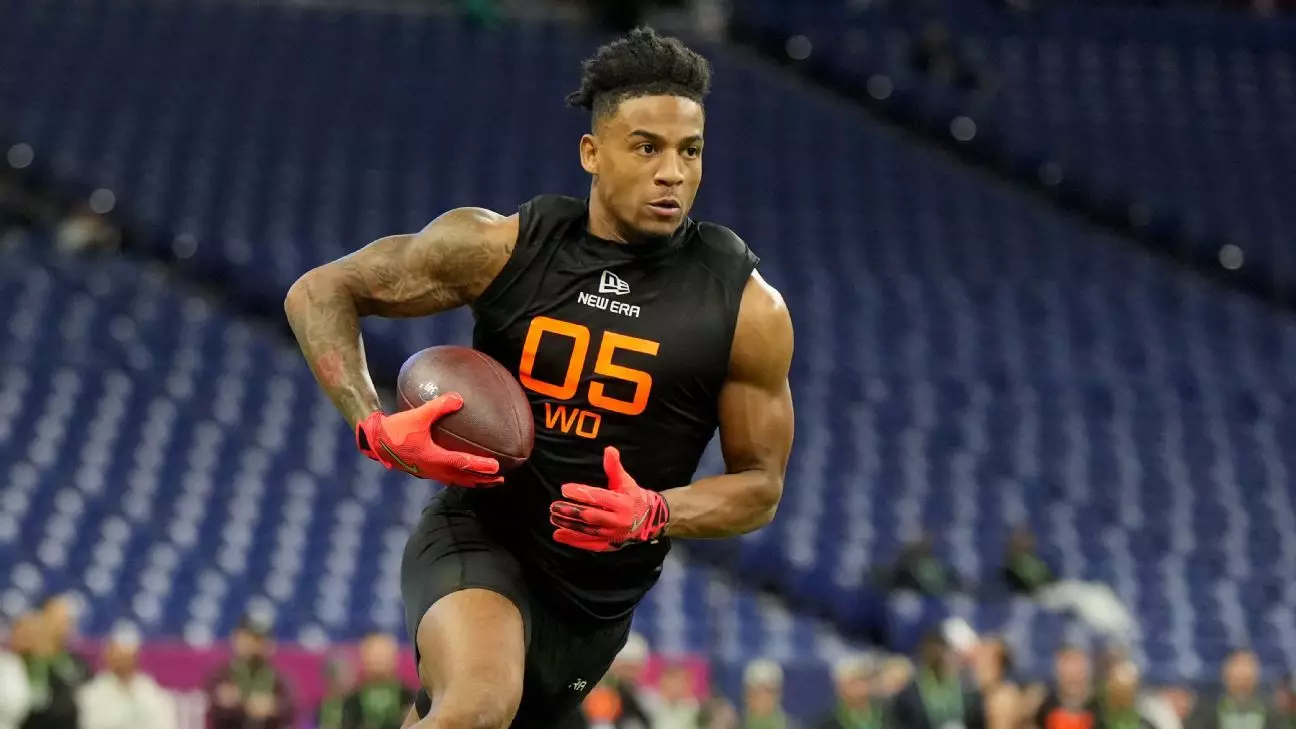The recent legal turmoil surrounding NFL draft prospect Isaiah Bond is both indicative of the tumultuous nature of fame and a reflection on the gravitas of legal allegations in the public eye. Bond, whose promising athletic career is caught in a whirlwind of accusations, finds himself at the intersection of a high-stakes legal battle and an aspiring sports career. His attorneys have lodged a lawsuit against an unnamed woman, asserting that her statements to the authorities were fabricated. The irony here lies in the fact that while Bond stands on the precipice of his professional career, he simultaneously grapples with accusations that could tarnish his reputation indefinitely.
The emotional and psychological toll on individuals accused of crimes, particularly sexual offenses, cannot be overstated. In today’s climate, even a whisper of such allegations can overshadow years of hard work and dedication. Bond’s quick response—turning himself in and later vehemently defending his innocence—speaks volumes about his intent to mitigate the damage being done. His lawyers have framed the situation as one of gross mischaracterization—stating that the encounter in question was consensual. This raises vital considerations regarding consent and perception, especially in an environment that is becoming increasingly vigilant about issues of sexual misconduct.
The Role of Social Media in Shaping Narratives
Following his release on a $25,000 bond, Bond took to social media, declaring the accusations against him “patently false.” This display of public defiance highlights a crucial aspect of contemporary society: the power of social media in shaping narratives. In an era when public opinion can exponentially amplify rumors and misinformation, athletes and public figures often feel they must seize the narrative proactively. Bond’s decision to address the allegations directly on social platforms demonstrates not just a desire to reclaim his image, but also reflects a broader trend among public figures grappling with their reputations in an increasingly connected world.
Damien Butler, Bond’s agent, echoing the sentiment of transparency, shared the first page of the lawsuit with all 32 NFL teams, which underscores the stakes at play. By disseminating this information, Butler is leveraging an excellent public relations strategy, aiming to reaffirm Bond’s innocence while mitigating the impact of the allegations on his collegiate and potentially professional career.
Implications for the NFL and the Sports World
At the heart of Bond’s struggle lies a larger discourse on how allegations impact not just the individuals involved, but the institutions that engage them. The NFL, a powerhouse in entertainment and sports culture, is often embroiled in controversies surrounding players’ off-field behavior. Every allegation—even unfounded—puts the league’s integrity under scrutiny. The outcome of Bond’s case not only affects him personally but could also reverberate through draft decisions, team cultures, and league policies regarding player conduct.
As the case unfolds, it presents an opportunity to reassess how society perceives and reacts to allegations, particularly in high-profile cases. Balanced dialogue about the importance of believing individuals while also recognizing the potential for false accusations is crucial. It is essential to ensure that legal battles, like Bond’s, garner thoughtful consideration rather than knee-jerk reactions. The stakes are high, and as Bond fights to clear his name, the implications of this incident extend far beyond the football field.

